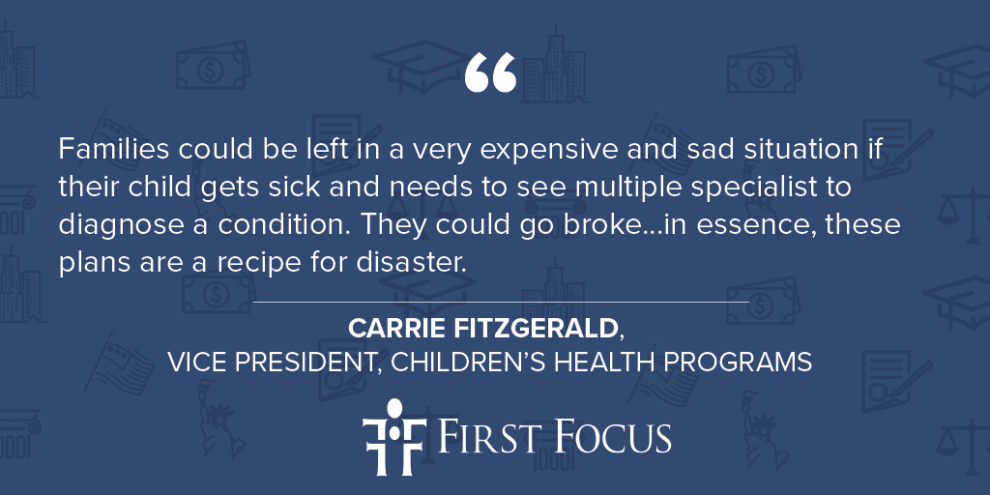
Remember the relief and happiness so many Americans felt when the Affordable Care Act (ACA) passed because finally their health insurance would cover their pre-existing conditions, like asthma and cerebral palsy and cancer? Covering pre-existing conditions became the norm, and many thought we could never go back to the way it was before, when insurance companies could decide what illnesses and parts of our bodies we could treat.
But today the Trump administration approved a rule allowing insurance companies to sell short-term plans beginning in October this year, before the ACA Marketplaces open for enrollments in November. Consumers may well be confused about this new option. Premiums for these plans will factor in age, gender, and health status. They will not include “essential benefits” that consumers receive under the ACA, such as mental health, prescription drug, and maternity coverage.
This rule will allow short-term plans to be sold for a year at a time and renewed up to 36 months, instead of just three months as it was before the ACA. Families could get locked into one of these plans for a long period of time and, upon facing a new and serious illness, face high deductibles and out of pocket costs.
The rule itself puts it pretty clearly:
“For example, short-term, limited-duration insurance is not subject to the requirement to provide essential health benefits and it is not subject to the prohibitions on preexisting condition exclusions or lifetime and annual dollar limits. It is also not subject to requirements regarding guaranteed availability and guaranteed renewability.”
And this is the “warning” consumers will see when they purchase one of these plans for a child or adult family member:
“This coverage is not required to comply with certain federal market requirements for health insurance, principally those contained in the Affordable Care Act. Be sure to check your policy carefully to make sure you are aware of any exclusions or limitations regarding coverage of preexisting conditions or health benefits (such as hospitalization, emergency services, maternity care, preventive care, prescription drugs, and mental health and substance use disorder services). Your policy might also have lifetime and/or annual dollar limits on health benefits. If this coverage expires or you lose eligibility for this coverage, you might have to wait until an open enrollment period to get other health insurance coverage. Also, this coverage is not ‘minimum essential coverage.’”
Families need to read that warning carefully and fully understand what they are buying. Otherwise, they could be left in a very expensive and sad situation if their child gets sick and needs to see multiple specialist to diagnose a condition. They could go broke. Their child could miss out on services and treatments. There could be a delay in even getting an appropriate diagnosis if no provider takes the short-term plan. In essence, these plans are a recipe for disaster for families.
Though the vast majority of commenters to the proposed rule raised concerns about the plans, the rule was approved anyway. Now, the options to protect families will fall to state regulators, as Sarah Lueck at the Center on Budget and Policy Priorities explains in this blog post.
I hope families will tell their state insurance regulator, governor, and state legislatures to regulate or bar these plans.